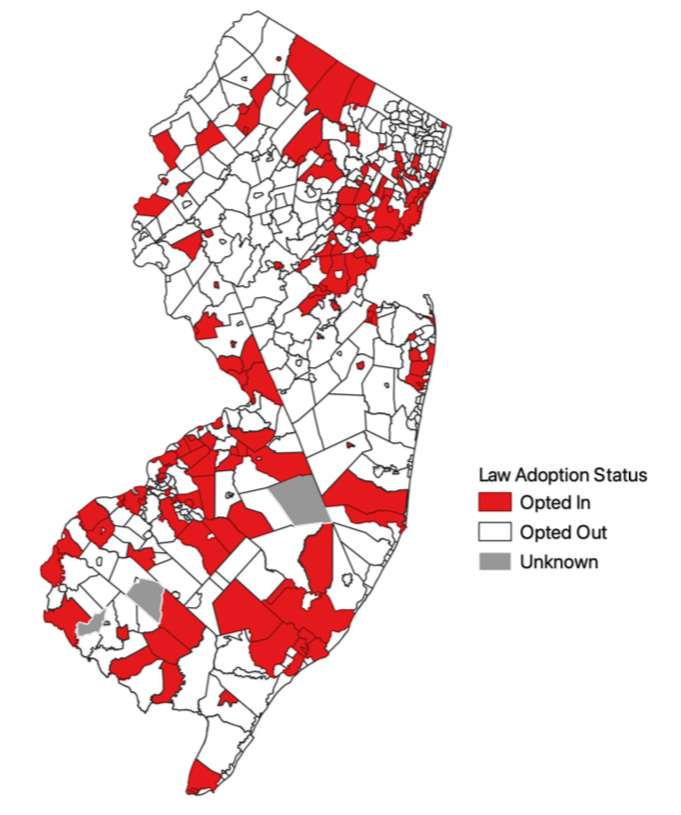During the Election of 2020, New Jersey citizens voted to legalize the consumption, production, and distribution of cannabis products. While New Jersey municipalities cannot prevent citizens from possessing or consuming cannabis products, they do have the power to regulate and ban cannabis-related businesses in their own jurisdictions. By the fall of 2021, more than 60% of all New Jersey municipalities opted-out of allowing local cannabis-related businesses in their towns. Figure 1 below shows the more than 400 New Jersey municipalities (in white) that opted out. Banning local cannabis-related businesses will likely have important economic and social impacts on NJ communities. Therefore, it is vital that state and local policymakers understand the types of municipalities that opted-in and opted-out of allowing cannabis-related businesses in their towns.
Figure 1. New Jersey Municipalities by Law Adoption Status

My research project first investigates to what extent different sets of political, socioeconomic, geographic, and fiscal characteristics are correlated with the decision to allow or ban cannabis-related businesses across New Jersey municipalities. Preliminary results suggests that municipalities with higher poverty levels, larger populations, and higher shares of votes for Presidential candidate Joe Biden in the 2020 election were more likely to have opted-in for allowing cannabis-related businesses compared to those municipalities that opted-out. Given that the preliminary results suggest that the poorest municipalities compared to affluent municipalities in the state are more likely to allow cannabis-related businesses, this could have important equity concerns across the state.
Additionally, there is evidence that municipalities that share a border with a municipality that opted-in for allowing cannabis-related businesses were more likely to also opt-in themselves. This suggests that municipalities may feel pressure to adopt similar regulations for cannabis-related businesses as their neighboring municipalities to stay economically competitive for business investment in their jurisdictions.
Moving forward, my research project will also explore the short-term economic impact of banning the production and distribution of cannabis products. Specifically, I will examine how legalizing the production and distribution of cannabis products has impacted residential property sale prices. It is possible that the banning of cannabis businesses is factored into homebuyers’ decisions to buy in a particular municipality, especially if homebuyers are concerned that these businesses may cause an increase in crime. This is important because home values are the lifeblood of local government property tax revenues.
A full policy report with finalized results and policy recommendations is expected to be published by the New Jersey State Policy Lab in September 2022.
